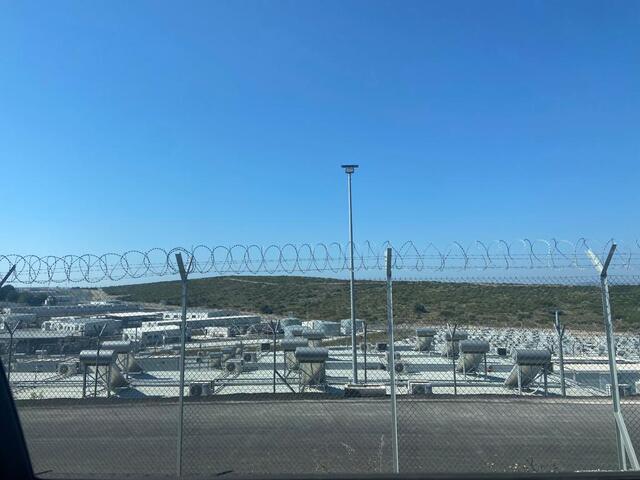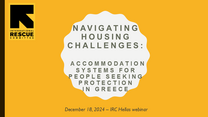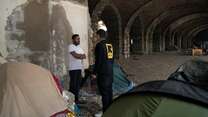This submission was prepared jointly by the International Rescue Committee (IRC), an international humanitarian aid, relief and development NGO, and I Have Rights (IHR), a legal aid NGO that provides legal information and support to asylum seekers on Samos. Its content and recommendations are informed by both organisations’ respective work supporting people on Samos island, where the IRC and IHR have cooperated between 2019-2022 to provide essential mental health and legal support to asylum seekers and refugees, both through direct programming and referrals. This submission is further informed by interviews with residents of the Samos Closed Controlled Access Centre (CCAC) and other stakeholders operating in these facilities, and includes additional information from the IRC’s programming in the CCAC in Mavrovouni, Lesvos.

The submission focuses on two questions raised by the Ombudsman’s inquiry:
- The impacts on the rights of migrants as a result of their stays in the CCACs, as identified by our organisations, and
- The level of access to legal assistance available to migrants staying in the CCACs.
Based on the two organisations’ experience, it argues that conditions in these closed centres are inconsistent with EU standards on reception and integration, as well as the 12 guiding principles of the Fundamental Rights Agency (FRA) for protection-sensitive and fundamental rights-compliant reception at the EU external borders, according to which the contribution is structured.
More specifically, several protection risks were identified due to the remote location of the CCACs. The financial burden of travelling to the nearest village is driving asylum-seekers to self-isolation and is preventing them from attending important medical appointments. Additionally, recurring and significant infrastructural shortcomings in the CCAC, the prison-like environment in a surrounding with multiple security and detention measures, and the serious limitations on services and infrastructure severely impact the quality of life, wellbeing and dignity of residents, in addition to their integration prospects.
The provision of legal-aid, necessary information and support by civil society organisations within the facilities also faces obstacles as a result of the closed character of the centres, poor internet connectivity within the CCAC, and the Ministerial Decision on the national registration of NGOs, hindering effective access to asylum for applicants of international protection.
Moreover, this contribution reports concerns around the proper implementation of identification procedures, as laid down in the Directive 2013/33/EU, due to the scarcity of state-appointed medical personnel.
Finally, the lack of safe accommodation and protection resources for women and the LGBTQIA+ community puts them at heightened risk of SGBV, while unaccompanied children are excluded from the necessary and specialised support they deserve, due to the long absence of a child protection actor in the CCAC.



